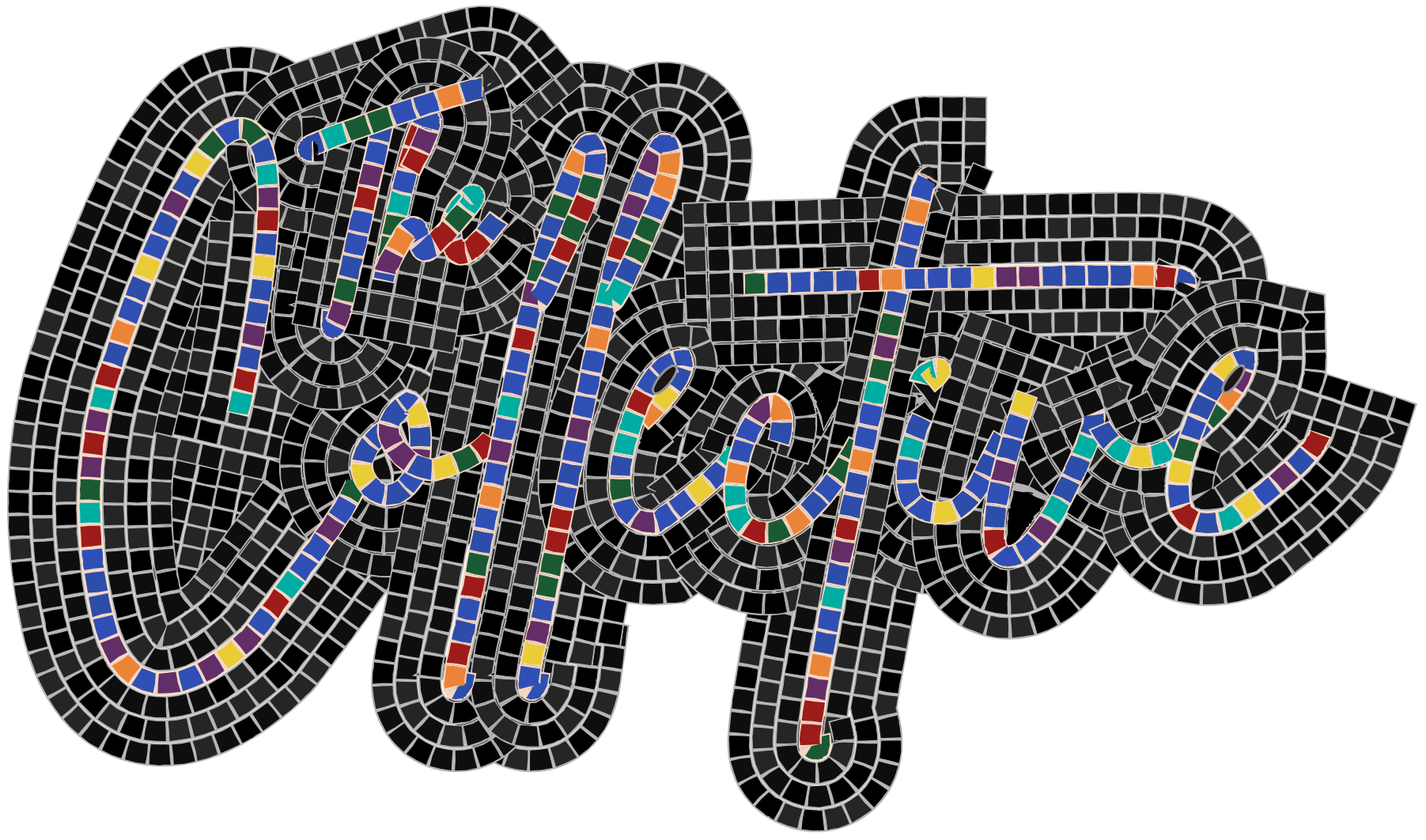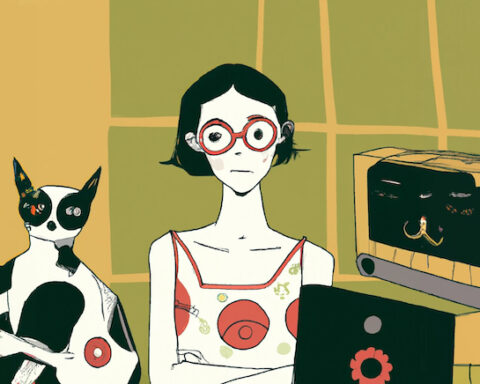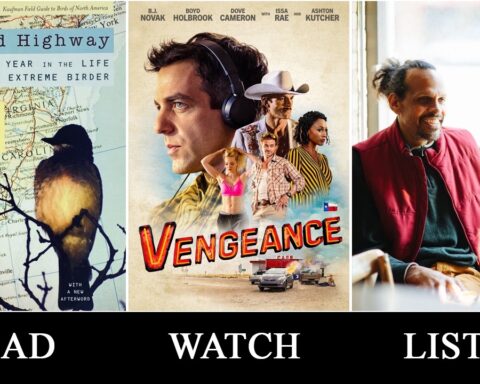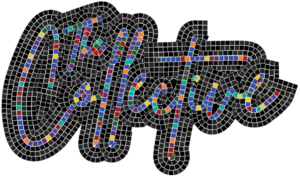The impossible attracts me because everything possible has been done and the world didn’t change.
Sun Ra
The kind of historical change that would leave myth behind—because the new nature really had brought about a new society—has not yet occurred. And this confronts us with an even greater paradox, one that demonstrates decisively that the conceptual elements are not invariants. Because such a radical historical change has never existed before in history, it can only find expression as myth. It follows that, condemned in one configuration, myth is to be redeemed in another.
Susan Buck-Morss
To say that my philosophical disposition often leans towards the cynical would be a rather kind understanding of my general position. I am, however, in a number of ways, attempting to change that. And I hope to formally begin with the offering of this brief reading of my favorite movie: the Wachowski’s live action Speed Racer (2008), based on the 1960’s manga and anime of the same name.
Indeed, this is at first glance a most curious favorite movie: a poorly rated box office failure that attempted (unsuccessfully) to appeal to a family audience with themes that (should) keep adults entertained (and the root cause of my totaled Honda Civic following the premier I saw in high school). The fact that it made it to the big screen at all is a minor miracle, as the film was technically in development hell as early as 1992 (and at one time had Johnny Depp slated to play the main protagonist, Speed).[1] The family-friendly Wachowski film we got in 2008 was a far cry from the original conception, and for better or worse failed to connect with a large audience. Much of the audience disinterest or rejection could be chalked up to the family orientation and the bright, saturated visuals (which relied on relatively advanced filming techniques such as shooting everything on green screen and layering things so that the foreground and background are simultaneously in focus).[2] And while I could spend much time dissecting things like the brilliance of the aesthetic cultivated by the film or the “car-fu” sequences featuring car fights the likes of which have never been seen before or since, I will instead treat the film as a text of philosophy. One with something important to say about our world and our place in it. Because of this treatment, and due to a lack of spacetime, in what follows I will perform a modestly thorough exegesis of two crucial moments close to the end of the film. They have been two of the most influential philosophical inspirations in my life so far. Which is not to say there are not other truly amazing scenes worthy of commentary — they will simply have to wait for another occasion.



Change and the world
The first occurs roughly forty-five minutes from the end of the film, at a crucial breaking point for Speed. He has just returned home from Casa Cristo, a brutal cross-country race, where he and the team he agreed to race with were victorious. The race had been exhausting physically and mentally, as not only were there any number of illegal weapons and devices used (including a handgun fired directly at Speed multiple times), but the race forced an emotional confrontation with Speed’s family and their shared traumatic history: it was during the Casa Cristo eight years ago that his brother Rex had been murdered. Rex had worked as an undercover racer for the government to root out corruption in the racing world and was assumed targeted by the criminals he put behind bars. Defiantly, Speed followed in his brother’s footsteps and agreed to help fight corruption by racing for a team that promised to deliver compromising evidence against the biggest fixers in the game in exchange for an honest victory (which would only be deliverable by employing the best racers, including Speed). Fueling his defiance was a desire to strike back against the capitalist mogul E.P. Arnold Royalton, who had offered Speed a contract only to be rebuked — racing is “like a religion” to the Racer household, and the major sponsors “are kinda like the devil.” Royalton retaliated by putting a bounty on Speed’s head at the next race in Fuji, which resulted in the illegal takedown of Speed during the race. He also used his wealth and power to file absurd litigation against Racer Motors, the family car company, in an attempt to ruin the family’s reputation. Royalton made it his mission to reveal to Speed the true heart of racing and his own grotesque and nihilist religion that seeks only power and money: the World Racing League had been invented by capitalists for purely business purposes, and every race, especially those of high importance, like the prestigious Grand Prix, were orchestrated and fixed down to every last driver. There was nothing free about the sport of racing, only theater behind which power and money exchanged hands. The Casa Cristo rally race was a chance to confront the family’s past, and move towards a more just world where racing, and those who race, could be free from the tyranny of capitalists and fixers.
But all was for naught. The team, sponsored by Togokhan Motors and helmed by Taejo, the heir to the company, had won the race and an invitation to compete in this year’s Grand Prix, but Taejo suddenly refused to give over any compromising evidence and decided to sit out of the Prix. Instead, he and his father used the victory to sell shares of their company to Musha Motors via Royalton at an inflated price — the exact kind of thing Royalton chillingly told Speed that racing had always really been about.
Enraged, Speed headed to Thunderhead, the racetrack where his family often picnicked, and the site of both his and Rex’s breakout races. Furiously racing around the track in the dark stadium, he is confronted, and ultimately brought to a stop, by a car-fu duel with Racer X, the mysterious masked racer who works with the government and had raced on the team with Speed and Taejo at Casa Cristo — and who Speed suspects is his deceased brother in disguise. It is there, on an empty track in the middle of the night, that our first philosophical point is found.
After unmasking, and assuring Speed that he is not, in fact, his dead brother (which is, of course, a lie), Racer X comforts Speed with reassuring words: he is sure that his brother would be proud of him. But Speed is not so sure.
“Racing hasn’t changed and it never will.”
“It doesn’t matter if racing ever changes. What matters is if we let racing change us. Every one of us has to find a reason to do this. You don’t climb into a T-180 to be a driver — you do it because you’re driven.”
Against the simplistic and mechanistic platitude of “be the change you want to see in the world,” Speed Racer offers us something rather more interesting: sure, be the change and attempt to change the world, but more important is to reject the changes the world imposes on you and your joy. Stay true to your particular being. Resist being subsumed by History, and understand yourself as a dynamic and radically singularly unique particular. For it is only in understanding yourself as radically and singularly unique that you find its opposite: your impossible relationality with the world, with the Other. Speed is only Speed because of his dependence: the love from his mother and father, the inspiration from his brother, his fantastical connection to cars, and his joyous love of driving. All these are particular relations only to him and make him, him. And only in embracing his relational particularity, his uniqueness as Speed, is he able to recognize his place in something greater and find his true reason for racing.
To be absolutely clear, this rejection of the changes the world imposes is not some justification for regressive fantasy. For Speed, it is about preserving his racing religion of joy and beauty that is threatened by the evil of capitalist greed. Upon understanding the cruel reality that racing has always already been a quantified mechanism for the rich to get richer, Speed falters in his faith that the joy and beauty he believes in is even real. Racing can’t change. It can’t overcome its origins as a charade for the rich.
But Racer X disagrees. As someone who knows all too much about the impossibility of change, having sacrificed everything he loves for simply a chance to continue fighting for the religion of his family, Racer X rebuffs Speed with a charge to stand against the World. Against all that racing is, and instead keep within his heart the conception of what racing could be.
“If you know so much why do you tell me why I should keep driving.” “Sorry. That’s for you to figure out. I just hope when you do that I’m there to see it.”
Fixity and the self
The second philosophical point comes near the very end, on the final lap of the Grand Prix. You see, after his talk with Racer X, Speed returned home with a commitment to leave the family and grapple with his existential angst. After some heartfelt assurances from Pops, his father, that he will always have a home there, he is surprised to find Horuko Togokhan, sister of Taejo, at the door. She has secretly stolen the final invitation to the Grand Prix from her brother, who did not intend to use it. She informs them that, as a member of the winning team at Casa Cristo, Speed is legally allowed to participate in the race in Taejo’s place as long as he presents the invitation at the event.

Since Speed’s last track racing car was destroyed by the illegal Royalton thug in the race at Fuji, Speed found himself without a car and an invitation to the biggest race of the year — which was occurring in just a couple days. Pops Racer assembles the family to build Speed a car in the short amount of time. By relying on each other, and all working together, the family is able to get it ready and loaded in a trailer to head to the stadium at the last possible minute. (In juxtaposition to Royalton’s automated facility that uses robots to churn out the latest racecar models, the Racer family uses love to build theirs; each member does as they are able, relying on the others for assistance and care — Mom Racer feeds the family pb&js while instead Royalton and his pals eat at an exquisite buffet.) As his invitation is legitimate, Speed is allowed to race after the authorities get involved to ensure the capitalists do not stop him from messing with their fixed finishing order. Royalton is furious. He offers one million dollars to any driver who takes out Speed and installs an illegal device on his driver’s car to ensure he wins.
It is there in the Grand Prix, after the first lap, that we find Speed stranded, and the beginning of the second philosophical point. Having worked his way up to the front of the race during the first lap, Speed was illegally taken down by Royalton’s decorated hall-of-fame-bound driver and predesignated winner of the Grand Prix. Even though Speed was able to expose the cheating and tarnish Royalton’s reputation during the crash, he sits in his cockpit shouting “No don’t do this!” as his damaged car refuses to budge from its stalled position. The other racers rush past him, and he is left to watch as his last chance for justice slips out of view.
Or has it.
The sequence that follows is something I have always found quite moving, for whatever reason. You see, the car is, for all intents and purposes, broken. That is, it is in need of expert mechanical repair in order to operate properly according to its design. But, as his brother told him as a child: “this ain’t no dead piece of metal. Your car’s a living, breathing thing, and she’s alive. You can feel her talking to you, telling you what she wants, what she needs. All you gotta do is listen.” And so, all these years later, he does. Speed doesn’t fix the car. He doesn’t even try. He is quiet with it. He listens to it. Because like so many things we assume broken: the car doesn’t need to be fixed. “Listen, Speed, just listen,” whispers his brother from the hushed stands. “What do you need…” asks Speed, tracing the wheel and stick shift with a sincere tenderness.
Suddenly, it happens.
The dialectic of self and object is obliterated, and Speed seemingly becomes one with his car, jolting it to life with a thrust of the stick shift and slamming on the pedal to explode off at an impossible speed to make up the ground he has lost. By listening to his car, by being open and receptive to the Other, he gains the ability to drive better and faster than anyone ever has —“he’s shattering the lap record!” The crowd becomes entranced, sensing the impossible: “He’s gonna do it” murmurs his younger brother Spritle in the stands next to his parents, a look of bewilderment on his face as his brother appears possessed.
In this moment the parallax gap between subject and object, that perplexing space between us and the world that has haunted philosophies of many traditions for centuries, is itself shattered by Speed, which unleashes the impossible into the narrative. Speed races ahead, somehow utterly destroying every car in his way, utilizing the peculiarities of the track — meaning, that instead of fighting against the difficulties the track imposes, he finds their opposite, that which allows him to go even faster.
For example, in the first lap he struggled going down a steep drop that leads to a large, curved wall, which forced him to dodge cars and skid along the edge of the curve with his rear wheels screaming in protest. In the second lap he bursts over the edge of the drop, rocketing down towards the curve as his mother’s words echo in his head — “When I watch you do some of the things you do… you just take my breath away” — at which point he reaches the curve and flips his car beautifully into the air in a dazzling display that elicits a gasp from his mother, and allows the momentum of the car to not only be maintained, but increased, as he rides back down towards the final stretch of track.
It is in this final stretch, in Speed’s moment of absolute triumph over commodification, that he finds his reason for driving. It is a subtle and silly thing in the end. His past continues to rush through him, lingering on his father’s joy in watching racing with his second son to heal the trauma of losing his first, on the ease of life when he’s behind the wheel of a racecar, and his commitment to never bow to the capitalist Royalton —
“Are you ready to put away your toys and grow up? Are you ready to become a REAL racecar driver?
“When I’m in a T-180, everything just makes sense.”
In the end, it’s joy. Pure and simple. And the Wachowskis present this joy not as some profound statement, but as a wordless flashback to his years as a child, to his playful imagining that kept him unique and an unsuccessful student but attracted the love of his life, Trixie. It’s a joy for racing that was built around a deep love of family, freedom, and self-expression. It is the difference between Speed and so many other drivers, a difference his mom has already articulated earlier in the film: “What you do behind the wheel of a racecar has nothing to do with business… I go to the races to watch you make art.” Here is not merely a rejection, but an overcoming of the World. Racing hasn’t changed and it never will — this race proves that is only true until he is able to refuse the change racing imposes on him. The World wants driving to be about business, to be a performative charade that placates the masses while moving money around according to the desires of capitalists. This is what modern track racing was literally created to do. The capitalist soul of racing incarnate in Royalton said explicitly that “it has nothing to do with cars or drivers. All that matters is power, and the unassailable might of money.” But by being an immovable particular, by refusing to lose his joy and his singularity in the face of History (the World according to humans), Speed is able to reject the commodified capitalist Real of racing, and instead bring into reality the impossible: racing as a purely joyful expression of the family and working class. The World Racing League was invented by the capitalists, and the joy it brought had always been used for their gain. And so it is the very lie the capitalists fed the working class that emerges as Truth in Speed’s victorious final lap — the very real joy the lie engendered comes spilling through the seams of the fetishized competitive stitching. Racing is joyful art and has nothing to do with business.
As Speed nears the finish line, confronted by only two other drivers, he makes sure there is no doubt about his victory: eschewing the track, that on which all are supposed to travel, he deftly maneuvers onto the flashing advertising signs that saturate the final stretch. Burning his tires into the commodified background that is the antithesis of his joy, and in a flurry of total car-fu mastery, he wields his car, the car built from scratch by him and his family, like a guillotine – obliterating his opponents and severing the final two heads of the capitalist hydra to the hysterical screams and liberating roar of the international stadium and wider global community. Freedom is at hand. As the victory line approaches, he bursts through the remnants of his opponent’s cars —Go Speed Racer Go! — spinning into a dizzying checkered victory vortex that thoroughly exhausts the super-human power he established with the World, seen in the aching groans of the racecar and its liquified tires. It is in his opening of the cockpit that we come to understand what it is he has accomplished:
“He did it. This could change everything.”
“It already has.”[3]
Speed’s action did the change itself, and requires no justification or explanation for how it has — racing, simultaneously the mechanism for capital manipulation and the joyous activity Speed loves, has emancipated the world.
What these two moments have instilled in me for all these years is a quixotic and indomitable hope for a radically better world. This movie can easily be read as some kind of martyr fantasy — the hero refuses the world and is granted the power to actually change it. But is it really fantasy? What if we listened to the world, to all things, not just the “living” or “intelligent”? What if we took our racecars to be living, breathing things? What if we held on to our naïve personal religions, to our absurd joys, as inspirations for a new world — ideas that could be brought into reality?

[1] For a thorough history of the hell, the production, and the reception: https://fictionmachine.com/2015/06/18/you-do-it-because-youre-driven-speed-racer-2008/
[2] One of any number of examples: https://www.rogerebert.com/reviews/speed-racer-2008
[3] This is all, of course, quite overstated within the world of the film. Certainly appropriately dramatic and theatrical, Speed’s victory indeed inspires Taejo to testify against Royalton, landing the big capitalist baddie in jail, the judge declaring that “cheaters never prosper” — but the trouble can be seen within that very declaration: cheaters do prosper, and have, for some absurd number of years, completely unchecked. Furthermore, there is no reason to think that cheating goes away, and the World Racing League is purified, from a single victory. I believe that Racer X says that Speed’s victory has already changed everything because it ushers in true material hope: things literally don’t have to go the way the status quo dictates that they should. That hope is enough to put Royalton behind bars, and so would ideally spread to all aspects of society. The victory is symbolic of the change to come, a change the Wachowski siblings were unable to flesh out in further films due to the poor box office numbers. In the end it may be most worthwhile to understand the final lap of the race (or even the entire film) allegorically (as I do): the grotesque and exploitative social reality we find ourselves in must be understood as wholly unnatural. And only by holding tight to our joys and our love of one another do we have the potential to impossibly break through and leap into the open sky of history.








brother, I would love to shake your hand one day. This is the greatest piece of literature ever written in regards to the esoteric classic that is the Wachowski’s Speed Racer.
Unexpected, beautiful, and appreciated.